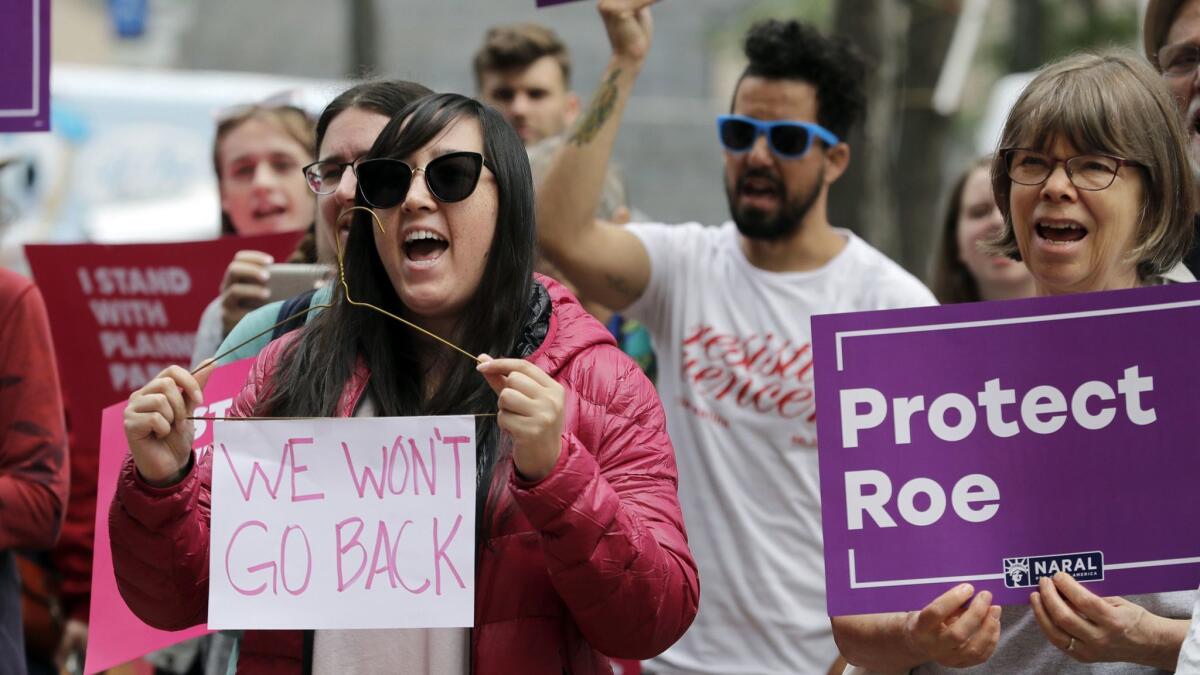Readers React: A Supreme Court that would overturn Roe really is a mortal threat to women

To the editor: The picture and story are iconic to anyone who has seen or heard it: In the photo, a 28-year-old woman is naked and dead on a motel room floor after hemorrhaging from an illegal abortion performed by her boyfriend. The year was 1964, nine years before Roe vs. Wade made abortions legal and safe.
The lesson? A U.S. Supreme Court majority reversing that decision won’t eliminate abortions in the states that, in response, try to ban the procedures. Desperate women will always take desperate steps when faced with an unwanted pregnancy. The outcome was all too often tragic, which any physician working in an ER at the time could confirm.
I am haunted by this story and picture, and I am terrified that history will repeat itself. But to some extent, it probably already has, given how anti-abortion forces are successfully chipping away at access to legal abortion in a growing number of states.
Laura Morgan, Los Angeles
..
To the editor: The L.A. Times article is spot on about Supreme Court nominee Brett Kavanaugh’s admiration of the late Chief Justice William Rehnquist’s dissent in Roe vs. Wade as well as his opposition to the separation of church and state.
As Senate Republican leadership and the Trump administration try to walk back Kavanaugh’s extensive anti-choice record, The Times uses the nominee’s own words to validate what we already know: Kavanaugh would be the final vote to gut Roe.
Trump has promised over and over again to appoint Supreme Court justices who are committed to overturning Roe, and Kavanaugh passes the president’s litmus test.
Kavanaugh’s intellectual loneliness at Yale Law School was not a consequence of his being correct; it was because his anti-choice opinions and lack of respect for the separation of church and state were — and still are — far out of the mainstream of American values.
Amy Everitt, San Francisco
The writer is state director at NARAL Pro-Choice California.
Follow the Opinion section on Twitter @latimesopinion and Facebook
More to Read
A cure for the common opinion
Get thought-provoking perspectives with our weekly newsletter.
You may occasionally receive promotional content from the Los Angeles Times.






